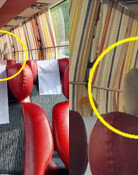[Opinion] Abes Japan
It is decided that Chief Cabinet Secretary Shinzo Abe will be appointed as Japans next prime minister. He is the youngest prime minister since World War II (51 years old). He has made a speedy advance since the beginning of his political life at the age of 39 when he became a member of the House of Representatives. Undoubtedly his family inheritance was the main background for his quick success. He is the grandson of the former prime minister, Kishi Nobusuke, and the son of Shintaro Abe, the former minister of foreign affairs. His other grandfather, Hiroshi Abe, was also a member of the House of Representatives. More than one-third of the Japanese political circle consists of hereditary representatives, but the Abe family is quite outstanding.
Abe visited Pyongyang four years ago as the chief cabinet secretary accompanying Junichiro Koizumi. At that time, he insisted that (Japan) should not sign the Pyongyang Declaration unless North Korea makes apologies about the kidnap of Japanese people. When the five Japanese people kidnapped by North Korea temporarily returned to Japan, he said, (We should break the promise and) not send them back to North Korea. Then the chief cabinet secretary, Yasuo Fukuda, who was the direct senior to Abe said that they should keep the promise. The decision followed Abes assertion. Fukuda voluntarily stepped down while competing with Abe over the position of the next prime minister.
Abes strong attitude toward North Korea won the minds of the Japanese people. He has been making comments like, We should bring about the collapse of the North Korean regime, and, We should not even let a stem of grass grow in Pyongyang. Recently, he has directed the prohibition of the entry by the North Korean ship Mangyongbong into Japanese ports and the promotion of the UN resolution on sanctions against North Korea, and has even mentioned the preemptive strike on the enemys military sites. Perhaps there would have been no Abe syndrome in Japan, had the hereditary regimes of Kim Il Sung and Kim Jong Il not kidnapped the Japanese people or launched the missile.
A variety of his comments draws our attention. An atomic bomb does not violate the constitution as long as its a small one. The controversies over the Japanese armys comfort women and the visits to the Yasukuni Shrine are troubles aroused by Asahi Shimbun. The Intercontinental Ballistic Missile does not violate the Constitution. We should amend the constitution and acknowledge the right of belligerency of Japan. He has made visits to the Yasukuni Shrine where the memorials in honor of the A-rank war criminals of the Pacific War are kept as a matter of course. From this fall, we will be facing Japan led by Abe as described. A hereditary regime to the north and a hereditary leader to the right. How should we manage to get along with them? It is a difficult concern.
Kim Chung-sik, Editorial Writer, skim@donga.com







